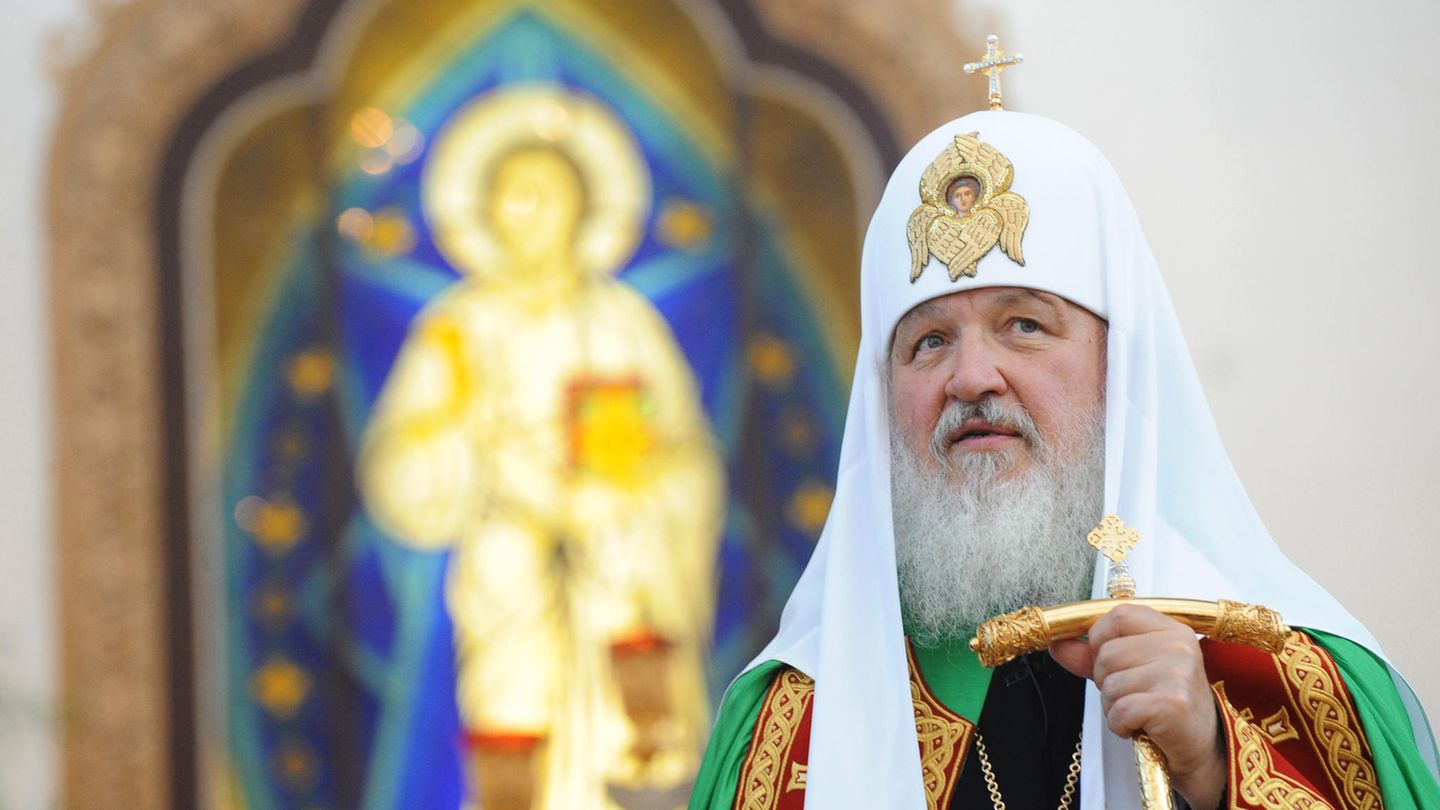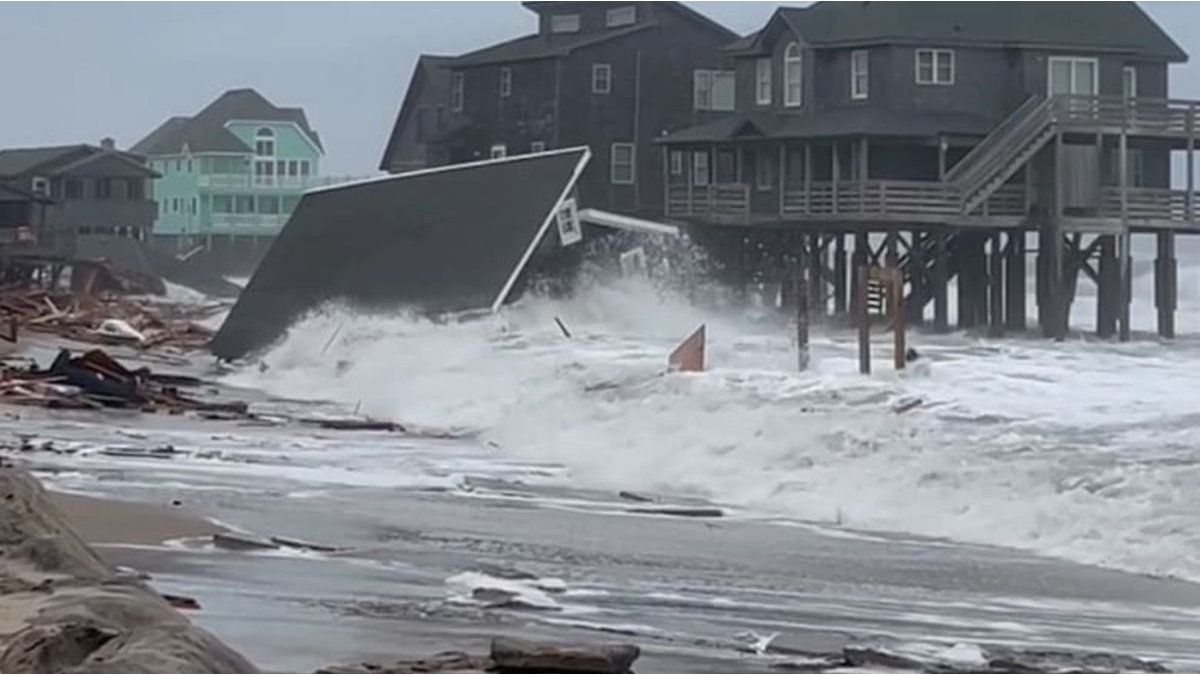Thousands of dead, millions of refugees – Kyrill, head of the Russian Orthodox Church, does not describe the situation in Ukraine as a “war”. The stakes are high for the Moscow patriarch. But his role divides the faith community in both countries.
The Russian invasion of Ukraine is not a religious war. But it is a war waged by faith. Whenever people fall victim to an armed conflict, religion plays a role – whether on a large or small scale. It is no different in Ukraine. A key figure that has helped Putin cling to power in the Kremlin for decades is Cyril I, head of the Russian Orthodox Church.
In Ukraine, there is a lot at stake for the 75-year-old Patriarch of Moscow: nothing less than the hegemony of his church in orthodox Christianity is at stake. Should Russia annex Ukraine, it would spell the early end of the independent branch of Ukrainian Christianity. Driven by this, the power-conscious cleric does not shy away from the instrumentalization of faith.
Churches in Ukraine: similar label, different content
60 percent of Ukrainians profess Orthodox Christianity. However, this flock does not follow just one shepherd. There is not THE church in Ukraine, but rather two institutions that differ little from a religious point of view, but are extremely different from one another politically.
On the one hand there is the Orthodox Church of Ukraine (OKU), which is independent of Russia and is headed by Metropolitan Epiphanius. In 2019, the Patriarchate of Constantinople (Istanbul) recognized the OKU as independent. A big step for the young branch of the church: According to a report by Deutsche Welle (DW), Bartholomew I is considered the “honorary head” of the approximately 260 million Orthodox Christians worldwide.
Then there is the “Russian counterpart”: The Ukrainian Orthodox Church (UOC) is considered an autonomous congregation within the Russian Orthodox Church. So far, however, this independence has existed more in theory. According to the “New York Times”, the UOC remains loyal to a large part of the Ukrainian village and city churches. Across the country, about 12,000 congregations are under Russian control – only 700 profess to be members of the Ukrainian church. According to the US newspaper, political and religious experts in Ukraine believe that UOC is being infiltrated by Moscow and being misused as the Kremlin’s foreign policy tool.
Moscow’s patriarch: spiritual leader in Putin’s orbit
However, the two institutions have one thing in common: they call the conflict in Ukraine by its name. War is war – we can (mostly) agree on that. Unlike the Russian Orthodox Church itself.
When Kremlin chief Vladimir Putin declared war on Ukraine two weeks ago on the night of Wednesday to Thursday, he got tangled up in confused arguments in his half-hour television speech. One of them: “An ‘anti-Russia’ hostile to us has been created in front of the country’s borders – on territory that Putin described as “our historical areas”. The autocrat quickly denied Ukraine’s existence. Putin received indirect support from Moscow Patriarch Cyril. As head of the Russian Orthodox Church, he couldn’t avoid making a statement about the outbreak of war. Or rather, to the “situation” – because the cleric, in Putin’s manner, did not put the word “war” in his mouth. Instead, Kyrill spoke of “differences of opinion” and a “tragedy”, called on “all parties to the conflict to do everything possible to avoid civilian casualties” and underpinned Putin’s justification for the attack by once again emphasizing a supposedly common identity between Russians and Ukrainians.
At the level of power, Russia’s spiritual leader in Ukraine has as much to gain or lose as his secular counterpart, Putin. According to an opinion piece in the online newspaper EU Observer, Cyril considers Ukrainian Christianity to be the canonical property of the Russian Church. The independent Ukrainian church would probably not survive a Russian victory – Kyrill’s opportunity to bring back the “lost sheep”. Because the turning away of many Ukrainian believers towards the independent OKU has long been a thorn in the patriarch’s side.
About “evil forces” and the fairy tale of unity
Thus, the importance of the patriarch goes far beyond his function as a religious propagandist. In fact, Cyril has provided Putin with a convenient – albeit bogus – reason to invade. According to the EU Observer, he “receives a weekly report on rights violations, the suffering people are experiencing…violence, beatings, fights over churches.” According to the US news agency AP, Cyril has even claimed that unspecified “external enemies” want to “force” Donbass residents to hold a gay pride parade.
Putin accepted with thanks. In his Feb. 21 speech, in which the Kremlin chief recognized the self-proclaimed Donetsk and Luhansk People’s Republics, he claimed that Kyiv “continues to prepare for the destruction of the Ukrainian Orthodox Church of the Moscow Patriarchate.” It is important to prevent that.
According to the AP, Rev. Cyril Hovorun, professor of ecclesiology, international relations and ecumenism at University College Stockholm, sees Cyril in a “golden cage”. His church received enormous state support for his unreserved loyalty to Putin. But even if the cleric wanted to express himself critically, he had no chance: “He is a completely unfree figure who has to follow the official narrative faithfully,” says Hovorun.
Even days after the start of the invasion, Kyrill did not moderate his tone. of “evil forces” fighting against the “Unity of Rus”. A “guarantor of this community” is a united church. “‘Where does the Russian land come from’, the land that today includes Russia and Ukraine and Belarus and other tribes and peoples,” he quotes a literal fairy tale.
Spiritual Resistance in Ukraine
But Cyril’s tirades affect not only Russian believers. In Ukraine, too, the Moscow Patriarch is dividing the community. It doesn’t matter whether or to what extent Kyril’s twisted ideology influences the Russian believers: the Ukrainians are obviously not blinded by it.
The spiritual resistance is stirring: The fact that the Moscow Patriarch consistently ignores Russia’s role as an aggressor has led to even the bishops of the UOC, which is close to Russia, turning their backs on the mother church and even giving instructions not to include Cyril’s name in prayers as is usual. “In the church, a major move away from Moscow can be seen,” Thomas Bremer, professor of ecumenical studies, Eastern Church studies and peace research at the University of Münster, told DW.
According to media reports, hundreds of Russian Orthodox clergymen have signed an open letter demanding an immediate end to the war, despite potentially serious consequences. Even Metropolitan Onufrij, head of the UOC and thus actually subordinate to Cyril, has described the Russian attack as an invasion, but speaks of a “fratricidal war”.
In a televised sermon shortly after the outbreak of war, Metropolitan Epiphanius, Patriarch of the independent Ukrainian Church, said: “Dear brothers and sisters. We pray and we act.” One thing is certain: this is better than praying and denying.
swell: ; ; ;
Source: Stern
David William is a talented author who has made a name for himself in the world of writing. He is a professional author who writes on a wide range of topics, from general interest to opinion news. David is currently working as a writer at 24 hours worlds where he brings his unique perspective and in-depth research to his articles, making them both informative and engaging.




